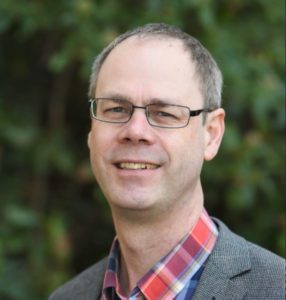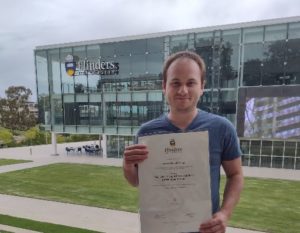
Free journal access for the latest research on ASEAN, climate change research builds with 10 Flinders DVCR grants, geospatial graduate lands a job – and a national award, while a callout has gone out for volunteers to test a sleep apnoea treatment.
Free access to ASEAN research articles this month
The April-June edition of the Journal of Human Rights, has a special focus on Association of Southeast Asian Nations (ASEAN) and Human Rights Governance.

The articles can be accessed free for the month of April, with co-editor of the issue, Flinders University Associate Professor Anthony Langlois saying the articles aim to critically analyse the performance of the human rights regime instituted by ASEAN nations a decade ago, with the creation of the ASEAN Intergovernmental Human Rights Commission (AICHR) in 2009 and the promulgation of the ASEAN Human Rights Declaration (2012).
“As the special issue is released, the ASEAN Intergovernmental Human Rights Commission is having its annual meeting,” says Dr Langlois, Associate Professor in International Relations. “A major issue for discussion is the bloody coup in Myanmar – can ASEAN’s rights regime address this issue?
“A wide range of continuing human rights issues have deteriorated as states use the cover of COVID-19 to mask increased levels of political repression and surveillance.”
The journal features an insider perspective from Indonesia’s Commissioner to the AICHR, Her Excellency Yuyun Wahyuningrum, including discussions of ways to reform and advance the effectiveness of the rights regime
The issue also has a focus on the problems with rights protection for people of diverse sexual orientation and gender identity expression (SOGIE) in the ASEAN region, with one article concerned with activist and advocacy strategies, and one covering law reform addressing the legacies of the British colonial laws which criminalised sodomy in Singapore, Malaysia, Brunei and Myanmar.
The 10 ASEAN countries also include Indonesia, Philippines, Thailand, Vietnam, Laos and Cambodia.
The edition also considers the uncertain ways in which human rights are specified and applied across the region, with proposals for change; the relationship between rights regimes and other platforms such as the Sustainable Development goals; and examines the regime in comparative perspective with others, such as the Inter-American system.
“Across the region, rights defenders struggle with freedom of expression, restrictions on press freedom and access to information, and a wide range of repressive laws. Economic and welfare rights, such as those to do with education and health, are displaced by other interests,” Associate Professor Langlois’s article says. “Police violence is common, with torture and disappearances a concern in some states. Human trafficking and the welfare of undocumented migrants are persistent problems.”
Associate Professor Langlois co-edited the issue with Dr Mathew Davies from the ANU’s Coral Bell School of Asia Pacific Affairs, who also hosted all the contributors for a workshop in late 2019.
DVCR grants support Flinders climate research
Ten projects funded by the University’s 2020 Climate Seed Response Grant round are building on major environmental research. Facilitated by the Flinders Deputy Vice-Chancellor (Research) Professor Robert Saint, the projects are being conducted by researchers in three colleges to investigate important aspects of sustainability and climate change. Partnering with various industry, government and other organisations, the projects are led by:
Professor Rocco Zito, ‘Minimise the end-of-life climate impact of electric vehicle batteries’ with Mitsubishi Motors and SA Government.
Associate Professor Cassandra Star, ‘Ensuring effective outcomes and implementation for climate adaptation policy: reviewing a co-designed, stakeholder-engaged, evidence-based approach to decision-making’ with Resilient South, City of Mitcham, City of Onkaparinga, City of Marion, City of Holdfast Bay and the Department of Environment and Water (DEW).
Dr Amir Jazayeri, ‘Climate change threats to water quality and freshwater resources on small islands in the Asia-Pacific region’ with the Secretariat of the Pacific Community.
Professor Adrian Werner, ‘Climate change and sea-level rise impacts to Australia’s largest replenished aquifer: Lower Burdekin Delta, Queensland’ with Lower Burdekin Water; and ‘Quantifying the impact of climate change on the threatened Doongmabulla Spring Complex’ with Queensland Business services of Coast and Country Inc (with Dr Dylan Irvine).
Associate Professor Beverley Clarke, ‘Integrated assessment of local governments’ coastal adaptation planning and practice’ with DEW and the SA Coastal Councils Alliance.
Professor Patrick Hesp, ‘Impacts of Fires on Kangaroo Island and Climate Change for South Australian Dunefields’ with DEW;
Associate Professor Huade Guan, ‘Towards an adaptive woody vegetation management for reducing bushfire risks’ with South Australia Landscape Boards Digital Earth Australia.
Dr Eddie Banks, ‘Protecting the world’s coastal aquifers from sea-level rise: A novel engineering solution’.
Associate Professor Jochen Kaempf, ‘Climate-change impacts on upwelling in the eastern Great Australian Bight’ with SARDI-PIRSA.
GIS grad grabs a job – and a national gong

Flinders University Bachelor of Applied Geographical Information Systems (GIS) graduate Alexei Tiong has won the best Undergraduate Student national award at the Surveying and Spatial Sciences Institute (SSS) and SIBA-GITA 2020 Asia-Pacific Spatial Excellence Awards.
Winners were announced last week (31 March), during a the online Locate21 conference, with Mr Tiong trough to the national competition after winning the State chapter best undergraduate APSEA award.
The judging panel said Alexei’s final-year project for his Bachelor of Applied GIS combined his skills in spatial science with those of virtual reality to produce Virtual Flinders, a project “that demonstrated how the superior abilities of gaming engines to manage and render 3D data can be utilised to view 3D data captured in the spatial science world”.
He was one of 20 outstanding individuals and groups from across Australasia recognised for their personal achievements and professional accomplishments in a wide variety of spatial and surveying research work, teaching efforts and projects.
Now working for Alexander Symonds, where he found a job “straight out of university”, he hopes to one day continue working on the Virtual Flinders project, as “I’m interested in becoming more proficient in the use of games engines”.
Volunteers for sleep apnoea study
Volunteers are being sought for a new sleep apnoea study investigating how well a new oral appliance therapy works to treat obstructive sleep apnoea. The Adelaide Institute for Sleep Health FHMRI Sleep researchers say the therapy is effective in about 50% of people who use it and can help improve symptoms such as daytime sleepiness, fatigue and snoring.
“We want to better understand how to predict who it will work for and whether combining with other targeted therapies can help in those who do not have a complete response with oral appliance therapy alone,” says researcher Georgie Rawson. As an alternative to CPAP, the study will test a “mandibular advancement splint” device, which works by opening the upper airway and increasing air flow.
This study involves at least two dental visits to assess your eligibility into the clinical trial and a device fitting before commencing. The trial may combine therapies with the addition of CPAP over a short period to treat OSA.
If you have sleep apnoea or know of anyone with sleep apnoea who is seeking therapy and may be interested in participating in our research study, please contact georgie.rawson@flinders.edu.au or complete our online research volunteers registry to express your interest.

